Hammer Film Productions Ltd. is a British film production company based in London. Founded in 1934, the company is best known for a series of Gothic horror and fantasy films made from the mid-1950s until the 1970s. Many of these involve classic horror characters such as Baron Victor Frankenstein, Count Dracula, and the Mummy, which Hammer reintroduced to audiences by filming them in vivid colour for the first time. Hammer also produced science fiction, thrillers, film noir and comedies, as well as, in later years, television series.
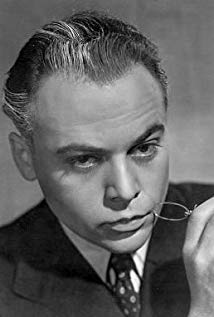
Herbert Charles Angelo Kuchačevič ze Schluderpacheru, known professionally as Herbert Lom, was a Czech-British actor with a career spanning over 60 years. His cool demeanour and precise, elegant elocution saw him cast as criminals or suave villains in his younger years, and professional men and nobles as he aged. Highly versatile, he also proved a skilled comic actor in The Pink Panther franchise, playing the beleaguered Chief Inspector Charles Dreyfus in seven films.
Amicus Productions was a British film production company, based at Shepperton Studios, England, active between 1962 and 1977. It was founded by American producers and screenwriters Milton Subotsky and Max Rosenberg.
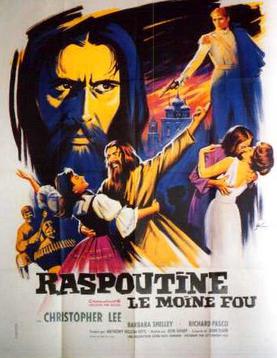
Rasputin the Mad Monk is a 1966 Hammer horror film directed by Don Sharp and starring Christopher Lee as Grigori Rasputin, the Russian peasant-mystic who gained great influence with the Tsars prior to the Russian Revolution. It also features Barbara Shelley, Francis Matthews, Suzan Farmer, Richard Pasco, Dinsdale Landen and Renée Asherson. The story is largely fictionalized, although some of the events leading up to Rasputin's assassination are very loosely based on Prince Yusupov's account of the story. For legal reasons, the character of Yusupov was replaced by Ivan (Matthews).

Night Monster is a 1942 American black-and-white horror film featuring Bela Lugosi and produced and distributed by Universal Pictures Company. The movie uses an original story and screenplay by Clarence Upson Young and was produced and directed by Ford Beebe. For box office value, star billing was given to Bela Lugosi and Lionel Atwill, but the lead roles were played by Ralph Morgan, Irene Hervey and Don Porter, with Atwill in a character role as a pompous doctor who becomes a victim to the title character, and Lugosi in a small part as a butler.
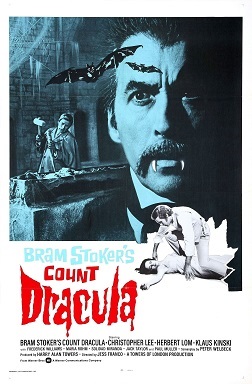
Count Dracula is a 1970 Gothic horror film directed by Jesús Franco, based on the novel Dracula by Bram Stoker. It stars Christopher Lee, Herbert Lom and Klaus Kinski.

The Devil-Ship Pirates is a 1964 British pirate adventure film directed by Don Sharp.
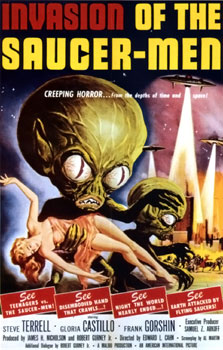
Invasion of the Saucer Men, is a 1957 black-and-white comic science fiction/comedy horror film produced by James H. Nicholson for release by American International Pictures. The film was directed by Edward L. Cahn and stars Stephen Terrell, Gloria Castillo, Raymond Hatton and Frank Gorshin.

Dracula and Son is a 1976 French comedy horror film directed and written by Édouard Molinaro. The film is about a vampire father and son. Christopher Lee reprises his role as Count Dracula from the Hammer Films Dracula film series.
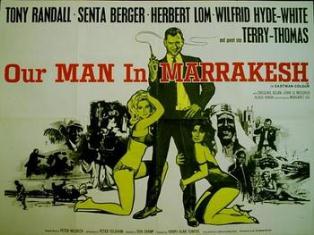
Our Man in Marrakesh is a 1966 British comedy spy film shot in Morocco produced and co-written by Harry Alan Towers, directed by Don Sharp and starring Tony Randall, Herbert Lom and Senta Berger.

Murders in the Rue Morgue is a 1971 American horror film directed by Gordon Hessler, and starring Jason Robards, Christine Kaufmann, Herbert Lom and Lilli Palmer. The screenplay by Christopher Wicking and Henry Slesar is a loose adaptation of Edgar Allan Poe's 1841 short story of the same name. However, it departs from Poe's version in several significant aspects, at times more resembling Gaston Leroux's The Phantom of the Opera. In a DVD interview, Hessler said that he felt it necessary to reinvent the plot as he believed the majority of audiences were too familiar with Poe's story.

Whoever Slew Auntie Roo? is a 1971 horror-thriller film directed by Curtis Harrington and starring Shelley Winters, Mark Lester, and Sir Ralph Richardson. Based partly on the fairy tale "Hansel and Gretel", the film focuses on a demented American widow living in her husband's English manor who becomes obsessed with a young orphan girl who resembles her dead daughter.
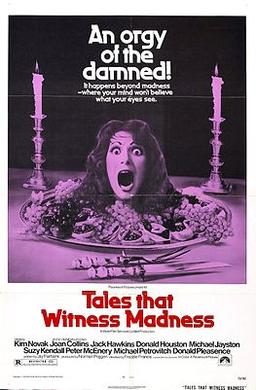
Tales That Witness Madness is a 1973 British anthology horror film produced by Norman Priggen, directed by veteran horror director Freddie Francis, written by actress Jennifer Jayne.

The Thrill Killers is a 1964 American horror film directed by Ray Dennis Steckler. It stars Steckler and Liz Renay.
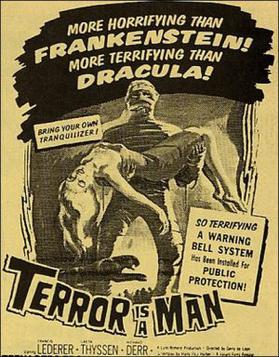
Terror Is a Man is a 1959 black-and-white Filipino/American horror film directed by Gerardo de Leon.
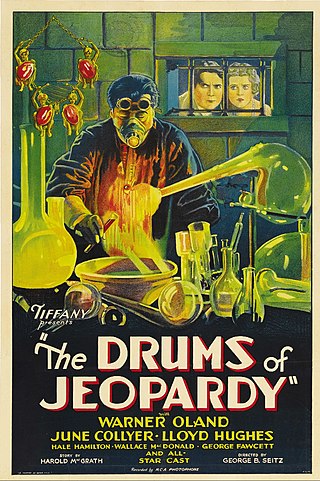
The Drums of Jeopardy is a 1931 American pre-Code horror film directed by George B. Seitz and starring Warner Oland, June Collyer and Lloyd Hughes. It is the second film adaptation of Harold McGrath's novel of the same name, and stars Oland as Dr. Boris Karlov.

Eve is a 1968 thriller film directed by Jeremy Summers and starring Robert Walker, Fred Clark, Herbert Lom, Christopher Lee and Celeste Yarnall.

The Mad Doctor of Blood Island is a 1969 Filipino horror film, co-directed by Eddie Romero and Gerardo de Leon, and starring John Ashley, Angelique Pettyjohn, Eddie Garcia and Ronald Remy.
















